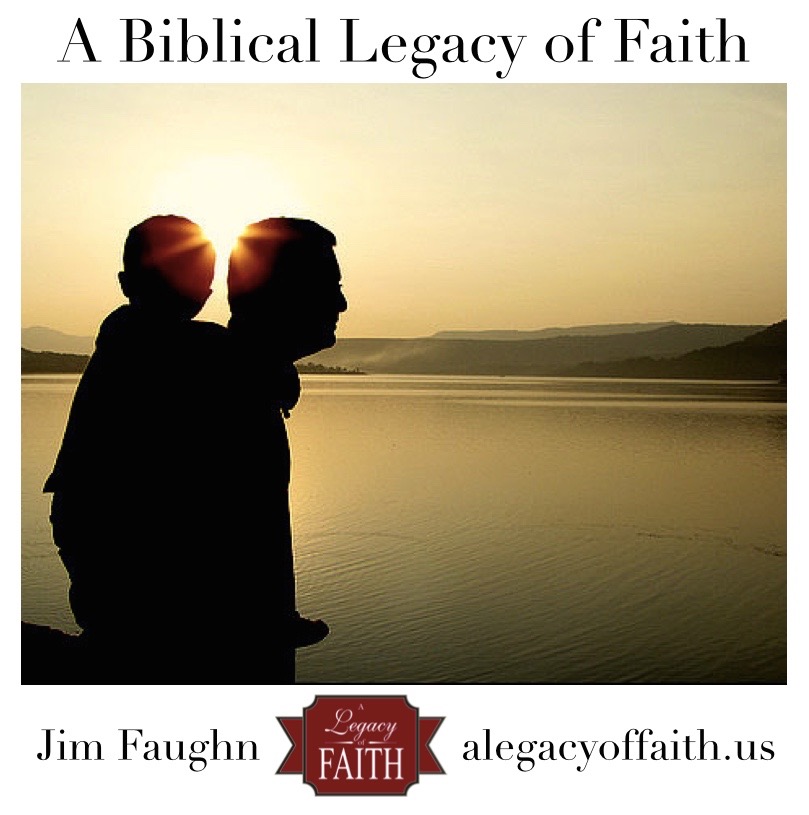A Biblical Legacy of Faith
Since yesterday was Fathers Day, I decided to preach on what I consider to be a biblical legacy of faith. I thought I’d share some (but not all) of the things I talked about here.
I chose Abraham as my example of such a legacy. I thought that was a good choice since Abraham is included in “Faith’s Hall of Fame” in Hebrews 11.
Specifically, I chose the events recorded in Genesis 22 as an example of his “legacy of faith.” In the interest of full disclosure, I need to point out that some of the thoughts that served as the basis for this lesson came from brother Neal Pollard and a lesson I heard him present at Polishing the Pulpit last year. What follows is not necessarily his lesson, but what follows would not be written had I not heard him.
As you probably know, Genesis 22 contains information about Abraham being called by God to do something that most of us could never imagine. He was ordered by God to sacrifice his son. As we know, the sacrifice was not carried out; at least with his son. There was a ram that was sacrificed instead. I also recognize that, because of Abraham’s willingness to carry out the will of God that Isaac was “…as good as dead…” (Heb. 11:12).
I recognize that there are some major theological implications in this passage. I also believe that there are some real practical points to be made for those of us who are fathers and/or those who, in any way, desire to leave a legacy of faith.
I will present the points I discussed as “bullet points” and some information. I am hoping that they may be building blocks for your own consideration.
It is my observation that a legacy of faith involves:
Love. I was not aware of this fact until brother Pollard pointed it out in his lesson, but the first time that the word “love” is used in at least most translations of the Bible is in Gen. 22:2, where God is speaking to Abraham and refers to Isaac as “…your only son Isaac, whom you love” (emphasis added).
It seems to me that Abraham’s love for his son was seen in the simple word “we.”
This indicates to me time spent together. If is wonderful for dads and others to spend time with children in recreational and other quality time activities. It is even better when “we” can be used to refer to times of worship.
Parents, especially dads, need to ask ourselves, “when was the last time I told my family that I love them?”
A very good friend of mine and wonderful Christian man passed from this life recently after a long bout with ALS (Lou Gehrig’s disease). His widow told me that a day never passed as her husband was lying in a hospital bed without their college-age son kissing his father on the forehead and saying, “I’m so glad you’re my daddy.” Those were the last words my friend heard from his son before leaving this life. The last words the son heard head from the father were, “I’m so proud you’re my son.”
Submission. Isaac was able to watch his father follow without hesitation God’s commands to “take,” “go, and “offer” (v. 2). Maybe that’s why he was willing to lie down on the altar without any struggle. It needs to be remembered that Isaac was probably far from being a toddler when the command was given to his father.
It could be easily assumed that, when he figured out what was going on, he could have easily overpowered his elderly father, but he did not. He submitted to his father’s instruction, just as his father had submitted to God’s instruction.
Hope. We read this in Romans 4:17 about Abraham: “…in hope he believed against hope…” Do those around us, including our children and grandchildren, hear and see demonstrated before them pessimism, negativity, “gloom and doom,” or do they see and/or hear the firm conviction that “…the Lord will provide…” (Gen. 22:14)?
Growth. We will not take a great deal of space to develop this point. We will merely make one suggestion. We will suggest that the Abraham who questioned how he and Sarah could have children was not the same Abraham about which we read in Genesis 22. To be sure, he was the same man, but he did not have the same faith. I wonder if those close to me see a faith that continues to grow as I go through the various stages of my life; including old age.
I promise that I do not borrow all of my ideas from my brethren, but I am indebted to something I read in brother Steve Higginbotham’s MercEmail a few days ago. He told how one of William Shakespeare’s daughters had to make her mark when she got married. The reason for that was that she was illiterate.
I did a little research of my own and discovered that the man whom many consider to be a writer who has no peers had more than one child who was illiterate. I cannot comprehend how a man of Shakespeare’s ability would not do all that he could to educate his own children.
It is also difficult for me to comprehend how anybody who wears the name of Christ would fail to do everything possible to leave a legacy of faith.
———–
To Receive Every Post via Email for Free, Click Here
Photo background credit: Nisha A on Creative Commons




